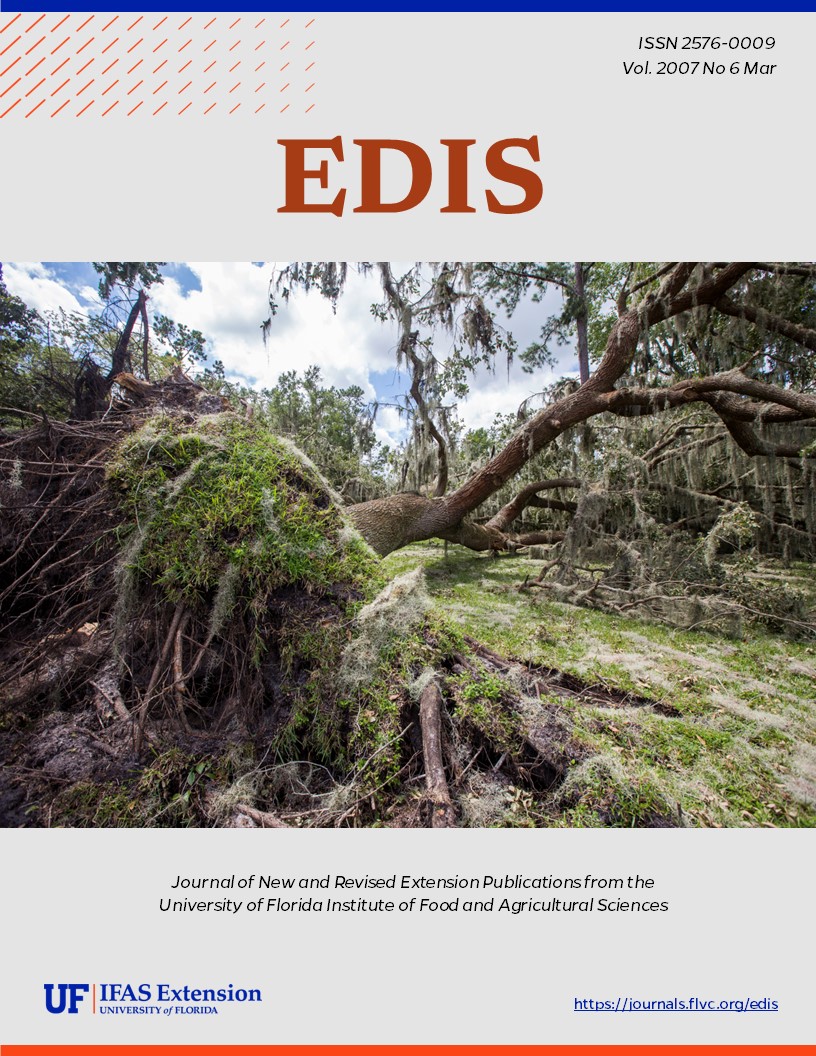Abstract
EENY-369, a 7-page illustrated fact sheet by John Warner and Rudolf H. Scheffrahn, describes this successful invasive soil-nesting ant that is considered a threat to native ants and is among 100 of the "World's Worst" invaders. Includes sections on distribution, description, similar ants in Florida, life cycle, foraging and feeding, nest sites, pest status, management and selected references. Published by the UF Department of Entomology and Nematology, January 2007.
References
Creighton WS. 1950. The Ants of North America. Bulletin of the Museum of Comparative Zoology 104. 585 p.
Deyrup M. (2003). An updated list of Florida ants (Hymenoptera: Formicidae). Florida Entomologist 86: 43-48. http://www.fcla.edu/FlaEnt/fe86p043.pdf (1 February 2007). https://doi.org/10.1653/0015-4040(2003)086[0043:AULOFA]2.0.CO;2
Fabricius JC. 1793. Entomologia Systematica Emendata et Aucta. Secundum classes, ordines, genera, species. Adjectis synonimis, locis, observationibus, descriptionibus. Hafniae: C.G. Proft 2 viii. 519 pp. https://doi.org/10.5962/bhl.title.122153
Fasulo TR. (2002). Cockroaches and Pest Ants. Bug Tutorials. University of Florida/IFAS. CD-ROM. SW 157.
Fasulo TR, Kern W, Koehler PG, Short DE. (2005). Pests In and Around the Home. Version 2.0. University of Florida/IFAS. CD-ROM. SW 126.
Ferster B, Deyrup M, Scheffrahn RH. (2000). The pest ants of Florida. http://flrec.ifas.ufl.edu/entomo/ants/Pest%20Ants%20of%20FL/index.htm (23 January 2007).
Hoffman B. 2006. Pheidole megacephala (insect). CSIRO Sustainable Ecosystems. http://www.invasivespecies.net/database/species/ecology.asp?si=132&fr=1&stsFirefoxHTMLShellOpenCommand.
Klotz JH, Mangold JR, Vail KM, Davis Jr LR, Patterson RS.1995. A survey of the urban pest ants (Hymenoptera: Formicidae) of peninsular Florida. Florida Entomologist 78: 109-118. https://doi.org/10.2307/3495674
Smith MR. 1933. Additional species of Florida ants, with remarks. 17: 21-26. https://doi.org/10.2307/3492695
Vanderwoude C, Lobry De Bruyn LA, House APN. 2000. Response of an open-forest ant community to invasion by the introduced ant, Pheidole megacephala. Austral Ecology 25: 253-259. https://doi.org/10.1046/j.1442-9993.2000.01021.x
Wilson EO. 2003. Pheidole in the New World, a Dominant, Hyperdiverse Ant Genus. Harvard University Press. Cambridge, MA. 794 p.

